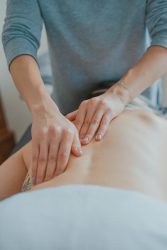Our Initiatives
Advocates
The role of an advocate is to promote the health, safety, and rights of patients and clients, providing holistic and empathetic care to the clients they serve. The Transcendental Meditation (TM®) technique releases stress and fatigue on a daily basis and has profound, immediate and cumulative results mentally, physically and emotionally.
Read MoreFirst Responders
Increasing resilience and healing post traumatic stress require an approach that directly impacts the physiology and neurophysiology. Thankfully, research studies document benefits from the TM practice in all fields of life, certainly applicable to first responders.
Read MoreFlight Attendants
Flight attendants are a unique group of people, who, in the aftermath of the September 11 attacks, report symptoms consistent with probable post-traumatic stress disorder (PTSD). Long time flight attendants experience chronic or recurring health problems that include measurable hearing loss, varicose veins, low backache, bunions, hearing loss, diminished pulmonary function, leg and joint fatigue, and early menopause.
Read MoreIndigenous Women
The Transcendental Meditation Program for Native American / Indigenous Women Starting in 1974, Transcendental Meditation (TM) organizations have engaged with various tribal leaders, building partnerships to support indigenous communities. The […]
Read MoreMassage Therapists
Massage Therapists are in demand more than ever. An LMT can work in a number of environments and have a variety of duties. While Massage Therapy as a career can be very fulfilling, it can also be physically and emotionally demanding. An LMT who takes the time to learn stress reduction strategies is better able to adapt to challenges and sustain a long healthy career.
Read MoreNurses
The nursing profession has a problem: Millions of us, charged with taking care of the nation’s people, come to work chronically fatigued. Studies have shown that 30% of new graduate RN’s leave bedside nursing in the first year, and 57% leave in the second year. Not only does fatigue impact our work life, it also affects our life outside of work—our time spent with family, friends, and ourselves. We all want to have more energy and happiness and to enjoy our professional and personal lives more.
Read MorePilates Teachers
Regular TM practice leads to the development of a higher state of consciousness—a self-realized sate of “liberation” or “freedom” (Nirvikalpa Samadhi or enlightenment). This exalted state of human experience has been documented scientifically in those practicing the TM technique, as evidenced by distinctive changes in brain functioning.
Read MoreProfessionals
Women who can think clearly, remain focused under pressure, and perform efficiently at work have an edge over people who cannot. Both personal experience and worldwide published research conducted in business and industry show that the Transcendental Meditation technique gives us broader comprehension along with the ability to focus sharply.
Read MoreRegistered Yoga Teachers
Regular TM practice leads to the development of a higher state of consciousness—a self-realized sate of “liberation” or “freedom” (Nirvikalpa Samadhi or enlightenment). This exalted state of human experience has been documented scientifically in those practicing the TM technique, as evidenced by distinctive changes in brain functioning.
Read MoreSocial Workers
Training to become a licensed social worker is difficult, complicated, and taxing. Once established in the profession, one encounters a demanding case load, ineffectual routine tasks, few opportunities for advancement, too few resources and minimal support.
Read MoreTeens and Young Women
How Does The Transcendental Meditation technique Help Young Women? You know it’s true: when we are secure in ourselves, we’re less concerned about approval from others and less influenced by peer pressure. The TM practice increases self-actualization—you get the picture.
Read MoreVeterans
Healing post traumatic stress in veterans requires an approach that directly impacts the mental, physical and emotional health.. Thankfully, there is a solution. Over 600 research studies document benefits from the TM practice in all fields of life. Practicing the Transcendental Meditation technique for twenty minutes twice daily provides deep healing rest which decreases: stress, fatigue, anxiety, depression, insomnia, relationship problems, and addiction.
Read More










